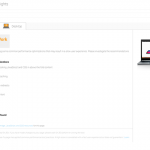Study Finds Work-Life Balance Could Be A Matter Of Life And Death
People often complain that their job is killing them, or that they’re working themselves to death, but new research suggests there may be more truth to those clichés than we realize.
A recent study conducted by Indiana University’s Kelley School of Business found that those who work in high-stress jobs with little control are more likely to die sooner than those who have more control over and balance in their work.
The study, which has been accepted for publication in the Journal of Personnel Psychology, followed up with Wisconsin residents who had participated in a longitudinal study of 10,000 people that graduated from Wisconsin high schools in 1957. Participants were interviewed on their education, occupation, and emotional experiences at various intervals throughout their lives.
Of those initial 10,000, Indiana University researchers identified 2,363 participants who had not yet retired in 2004, and interviewed them about their job demands.
When researchers followed up with this group in 2011, those who had spent their lives working in stressful environments that provided them with little control were 15.4% more likely to have died. At the same time, those who spent their careers with high levels of control as well as high job demands were associated with a 34% decrease in the likelihood of death, compared with low-demand jobs.
“We explored job demands, or the amount of work, time pressure, and concentration demands of a job, and job control, or the amount of discretion one has over making decisions at work, as joint predictors of death,” wrote the study’s lead author, Erik Gonzalez-Mulé, in a statement. “These findings suggest that stressful jobs have clear negative consequences for employee health when paired with low freedom in decision making, while stressful jobs can actually be beneficial to employee health if also paired with freedom in decision making.”
The study suggests there are a number of health complications that result from being micromanaged, many of which have a direct impact on the employee’s longevity. For example, those in high-stress positions with little control are more likely to be overweight, the authors suggest.
“When you don’t have the necessary resources to deal with a demanding job, you do this other stuff,” Gonzalez-Mulé says. “You might eat more, you might smoke, you might engage in some of these things to cope with it.”
Though more people are working from home than ever before, 70% of the American workforce still struggles to find a work-life balance, which could have negative health impacts over the long run.
Employers have become increasingly concerned with employee health in recent years, as studies continue to show the direct cost it can have. For example, Duke University researchers found that obesity costs American businesses $73.1 billion per year, while Harvard researchers suggest insomnia is responsible for $63.2 billion in costs.
Employers have combatted these expenses through the deployment of health and wellness programs, but the Indiana University study suggests they’re largely failing to tackle the health risk right under their noses.
“You can avoid the negative health consequences if you allow them to set their own goals, set their own schedules, prioritize their decision making, and the like,” Gonzalez-Mulé says. He believes that businesses should allow “employees to have a voice in the goal-setting process.”
That’s not to say that employers should avoid stressing out their staff. In fact, studies suggest that some acute workplace stress may help keep the brain alert, and that better alertness can lead to better performance.
“Stressful jobs cause you to find ways to problem-solve and work through ways to get the work done. Having higher control gives you the resources you need to do that,” says Gonzalez-Mulé. “A stressful job then, instead of being something debilitating, can be something that’s energizing. You’re able to set your own goals, you’re able to prioritize work. You can go about deciding how you’re going to get it done. That stress then becomes something you enjoy.”
The real health concern, explains Gonzalez-Mulé, occurs when stress meets a lack of control. Of the study’s deceased participants, 26% were in front-line service jobs, and 32% were in manufacturing.
“For a construction worker, it’s going to be really hard to allow them autonomy; there’s usually just one right way to do things. In jobs like that, it’s more about just warning the employee of the risks that are there,” he says.
At least employees of all shapes and collars can now put forward a compelling argument as to why they need more flexibility in the workplace. After all, it just might save their life.
related video: Keegan-Michael Key Talks Managing The Balance Of Art And Business
Fast Company , Read Full Story
(46)














